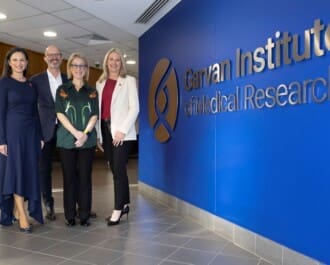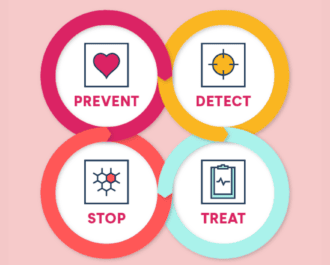
The diabetes pills taken by thousands of women could reduce the risk of breast cancer, a new study suggests.
The study suggests that women taking metformin for type 2 diabetes treatment, to lower their blood glucose levels, were 40 per cent less likely to have dense breast tissue. High breast density is a major risk factor for cancer.
Type 2 diabetes accounts for 85 per cent of all diabetes cases in Australia, and it is becoming more prevalent. Medications such as metformin help people with diabetes control their condition by reducing the levels of sugar produced by the liver.
The Danish study team discovered that those who controlled their condition by diet were also far less likely to have dense breasts, but those who used insulin regularly were twice as likely to have high breast density.
Breast density is known to be one of the strongest risk factors of breast cancer, with women who have highly dense breasts up to six times as likely to develop the disease.
Women with dense breast tissue have a higher risk of developing breast cancer because they have more of the glandular cells that can become cancerous. In particular, younger women tend to have denser breast tissue.
Currently mammographic screening is the best way to detect early breast cancer but high density breast tissue can make the disease harder to detect.
“Diabetes is associated with an increased risk of breast cancer, but the exact mechanisms which bring this about are still unclear,” said Dr. Zorana Jovanovic Andersen, of the University of Southern Denmark.
“One of the characteristics of cancer cells is their ability to grow rapidly and uncontrollably, and to resist the programmed death that occurs in non-cancer cells. Therefore, growth factors are critical to cancer development and progression.
“We know that insulin is an important growth factor for all body tissues, and even if we do not know exactly how it affects the development of cancer cells, it is also highly plausible that it increases breast density,” said Dr Andersen.
NBCF currently funds Associate Professor Jennifer Stone who is investigating how to better determine the environmental and/or genetic factors that affect breast density, to understand how it increases susceptibility to breast cancer.
She also believes that if breast density can be more accurately measured it could be a useful predictor of breast cancer risk and her project aims to develop a tool for clinicians to detect the disease earlier.
More News Articles
View all News


